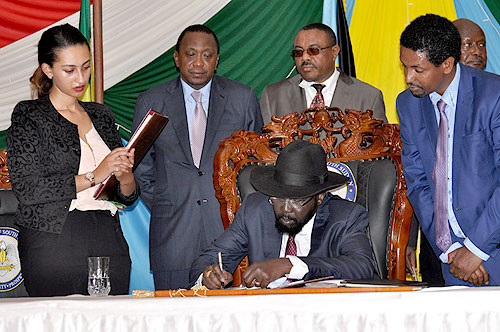Focus on the Agreement is a series of reports broadcast on Radio Tamazuj to explain the contents of the peace deal signed in August 2015 between South Sudan's warring parties.
In our previous episode we explained the role of the Joint Monitoring and Evaluation Commission. In today's episode we look at Chapter 8, which is about the supremacy of the peace agreement.
According to Article 2 of Chapter 8, the agreement must be adopted by the parliament of South Sudan and it should be fully incorporated into the constitution of South Sudan. In case of any conflict between the peace agreement and other parts of the constitution, the peace agreement will be considered the higher law.
“This agreement shall take precedence over any national legislation, and in the event that the provisions of a national legislation conflict with the terms of this Agreement, this Agreement shall prevail,” says the peace agrement in Article 3 of Chapter 8.
The peace agreement cannot be changed in the same way that the constitution can be changed. In fact, the transitional constitution many be amended by a 2/3 vote of the parliament, but the peace agreement also requires approval of 2/3 of the members of the Joint Monitoring and Evaluation Commission and 2/3 of the council of ministers.
This means that the peace agreement is legally even more difficult to change than the constitution of South Sudan. Decrees by executive officials and even laws passed by the parliament are considered less important than the peace agreement itself. Throughout the transitional period, it shall be the law of the land.
Read also our previous 'Explaining S Sudan's peace deal' (27): What is the Joint Monitoring and Evaluation Commission?




